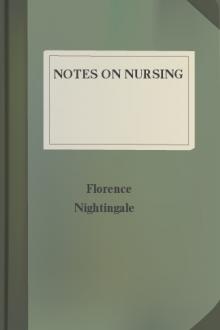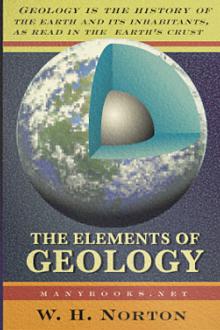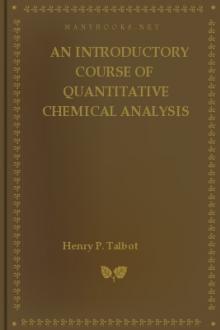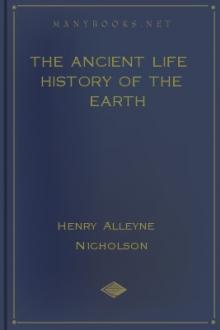Genre Science. Page - 4

the air without in the rooms you sleep in? Butfor this, you must have sufficient outlet for the impure air you makeyourselves to go out; sufficient inlet for the pure air from without tocome in. You must have open chimneys, open windows, or ventilators; noclose curtains round your beds; no shutters or curtains to your windows,none of the contrivances by which you undermine your own health ordestroy the chances of recovery of your sick.[4]
[Sidenote: When warmth must be most carefully looked to.]
A careful nurse will keep a constant watch over her sick, especiallyweak, protracted, and collapsed cases, to guard against the effects ofthe loss of vital heat by the patient himself. In certain diseasedstates much less heat is produced than in health; and there is aconstant tendency to the decline and ultimate extinction of the vitalpowers by the call made upon them to sustain the heat of the body. Caseswhere this occurs should be watched with the greatest care from hour tohour, I had almost said

th whom personally I had but a slight acquaintance, although I knew them somewhat by reputation. The younger one, Clinton Browne, is a young artist whose landscapes were beginning to attract wide attention in Boston, and the elder, Charles Herne, a Western gentleman of some literary attainments, but comparatively unknown here in the East. There is nothing about Mr. Herne that would challenge more than passing attention. If you had said of him, "He is well-fleshed, well-groomed, and intellectually well-thatched," you would have voiced the opinion of most of his acquaintances.
This somewhat elaborately upholstered old world has a deal of mere filling of one kind and another, and Mr. Herne is a part of it. To be sure, he leaves the category of excelsior very far behind and approaches very nearly to the best grade of curled hair, but, in spite of all this, he is simply a sort of social filling.
Mr. Browne, on the other hand, is a very different personage. Of medium height, closely knit, with the lat

fell sick, remote from assistance, in the solitude of their country houses.
Thus did the plague spread over England with unexampled rapidity, after it had first broken out in the county of Dorset, whence it advanced through the counties of Devon and Somerset, to Bristol, and thence reached Gloucester, Oxford and London. Probably few places escaped, perhaps not any; for the annuals of contemporaries report that throughout the land only a tenth part of the inhabitants remained alive.
From England the contagion was carried by a ship to Bergen, the capital of Norway, where the plague then broke out in its most frightful form, with vomiting of blood; and throughout the whole country, spared not more than a third of the inhabitants. The sailors found no refuge in their ships; and vessels were often seen driving about on the ocean and drifting on shore, whose crews had perished to the last man.
In Poland the affected were attacked with spitting blood, and died in a few days in such vast numbers

four years to the study of mathematics and science. On leaving Cracow he attached himself to the University of Bologna as a student of canon law, and attended a course of lectures on astronomy given by Novarra. In the ensuing year he was appointed canon of Frauenburg, the cathedral city of the Diocese of Ermland, situated on the shores of the Frisches Haff. In the year 1500 he was at Rome, where he lectured on mathematics and astronomy. He next spent a few years at the University of Padua, where, besides applying himself to mathematics and astronomy, he studied medicine and obtained a degree. In 1505 Copernicus returned to his native country, and was appointed medical attendant to his uncle, the Bishop of Ermland, with whom he resided in the stately castle of Heilsberg, situated at a distance of forty-six miles from Frauenburg. Copernicus lived with his uncle from 1507 till 1512, and during that time prosecuted his astronomical studies, and undertook, besides, many arduous duties associated with the administr

neralogical andpaleontological nature, and by confining the field of view almostwholly to our own continent, space has been obtained to give towhat are deemed for beginners the essentials of the science afuller treatment than perhaps is common.
It is assumed that field work will be introduced with thecommencement of the study. The common rocks are therefore brieflydescribed in the opening chapters. The drift also receives earlymention, and teachers in the northern states who begin geology inthe fall may prefer to take up the chapter on the Pleistoceneimmediately after the chapter on glaciers.
Simple diagrams have been used freely, not only because they areoften clearer than any verbal statement, but also because theyreadily lend themselves to reproduction on the blackboard by thepupil. The text will suggest others which the pupil may invent. Itis hoped that the photographic views may also be used forexercises in the class room.
The generous aid of many friends is recognized with special

ND. The learned will read your book to ascertain what you haveto tell.
AUTHOR. Perhaps.
FRIEND. Women will read your book because they will see---
AUTHOR. My dear friend, I am old, I am attacked by a fit ofwisdom. Miserere mei.
FRIEND. Gourmands will read you because you do them justice, andassign them their suitable rank in society.
AUTHOR. Well, that is true. It is strange that they have so longbeen misunderstood; I look on the dear Gourmands with paternalaffection. They are so kind and their eyes are so bright.
FRIEND. Besides, did you not tell me such a book was needed inevery library.
AUTHOR. I did. It is the truth--and I would die sooner than denyit.
FRIEND: Ah! you are convinced! You will come home with me?
AUTHOR. Not so. If there be flowers in the author's path, thereare also thorns. The latter I leave to my heirs.
FRIEND. But then you disinherit your friends, acquaintances andcotemporaries. Dare you do so?
AUTHOR. My heirs! my heirs! I have heard that shades

e failures and to "begin again," as much time is lost in thesefruitless attempts. Nothing less than !absolute integrity! is or canbe demanded of a quantitative analyst, and any disregard of thisprinciple, however slight, is as fatal to success as lack of chemicalknowledge or inaptitude in manipulation can possibly be.
NOTEBOOKS
Notebooks should contain, beside the record of observations,descriptive notes. All records of weights should be placed upon theright-hand page, while that on the left is reserved for the notes,calculations of factors, or the amount of reagents required.
The neat and systematic arrangement of the records of analyses isof the first importance, and is an evidence of careful work and anexcellent credential. Of two notebooks in which the results may be,in fact, of equal value as legal evidence, that one which is neatlyarranged will carry with it greater weight.
All records should be dated, and all observations should be recordedat once in the notebook. The making of

Microscopic section of a calcareous breccia. 7. Microscopic section of White Chalk. 8. Organisms in Atlantic Ooze. 9. Crinoidal marble. 10. Piece of Nummulitic limestone, Pyramids. 11. Microscopic section of Foraminiferal limestone--Carboniferous, America. 12. Microscopic section of Lower Silurian limestone. 13. Microscopic section of oolitic limestone, Jurassic. 14. Microscopic section of oolitic limestone, Carboniferous. 15. Organisms in Barbadoes earth. 16. Organisms in Richmond earth. 17. Ideal section of the crust of the earth. 18. Unconformable junction of Chalk and Eocene rocks. 19. Erect trunk of a Sigillaria. 20. Diagrammatic section of the Laurentian rocks. 21. Microscopic section of Laurentian limestone. 22. Fragment of a mass of Eozoön Canadense. 23. Diagram illustrating the structure of Eozoön. 24. Microscopic section of Eozoön Canadense. 25. Nonionina and Gromia. 26. Group of shells of living Foraminifera. 27. Diagram

c research will make it possible for a nation to elect by what sort of beings it will be represented not very many generations hence, much as a farmer can decide whether his byres shall be full of shorthorns or Herefords. It will be very surprising indeed if some nation does not make trial of this new power. They may make awful mistakes, but I think they will try" (S., p. 8). It is curious how the war, which had just commenced when these addresses were being delivered, has absolutely disposed, or ought to have disposed, of some of the prophecies of the President. Nothing, at any rate, seems more certain than that one result of this most disastrous struggle will be an urgent demand by all the States engaged in it for at least as many male children as the mothers of each country can supply, without special regard to their other characters, breedable or not breedable. We are even told that Germany is resorting to expedients which cannot be justified on Christian principles to fill her depleted homes. Whether thi

and, illogically enough, his presence in the street gave Mrs. Drabdump a curious sense of security, as of a believer living under the shadow of the fane. That any human being of ill-odor should consciously come within a mile of the scent of so famous a sleuth-hound seemed to her highly improbable. Grodman had retired (with a competence) and was only a sleeping dog now; still, even criminals would have sense enough to let him lie.
So Mrs. Drabdump did not really feel that there had been any danger, especially as a second glance at the street door showed that Mortlake had been thoughtful enough to slip the loop that held back the bolt of the big lock. She allowed herself another throb of sympathy for the labor leader whirling on his dreary way toward Devonport Dockyard. Not that he had told her anything of his journey beyond the town; but she knew Devonport had a Dockyard because Jessie Dymond--Tom's sweetheart--once mentioned that her aunt lived near there, and it lay on the surface that Tom had gone t